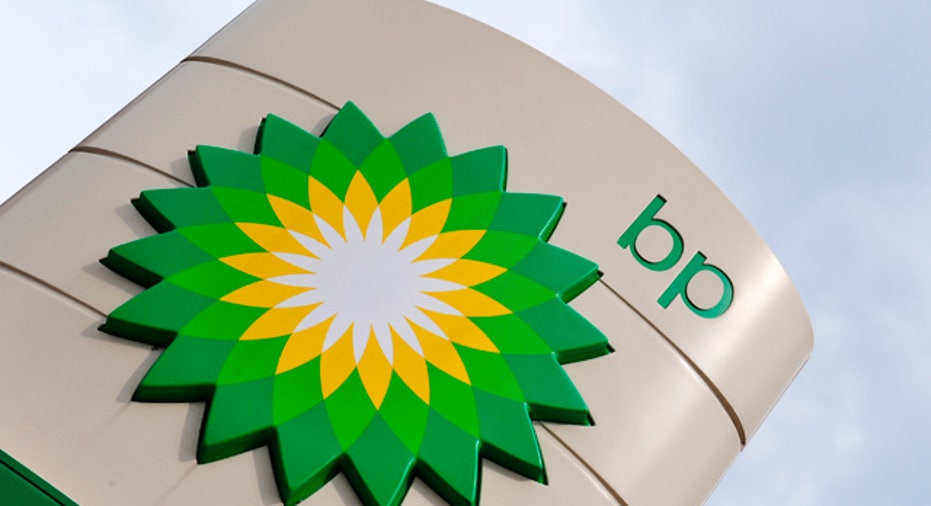BP Posts Slump in Russian Income but Raises Dividend

BP's third-quarter results took a hit from declining oil prices and a sharp drop in income from Russia as Western sanctions on Moscow led to a slump in earnings from the oil major's local partner, Kremlin-controlled Rosneft.
BP's overall profits were broadly in line with expectations at $3 billion but down nearly a fifth year-on-year. Its stock posted modest gains as investors welcomed a 5.3 percent year-on-year increase in dividends to 10 cents per share.
"Despite the positive financial results the company still faces two significant headwinds -- in Russia and liabilities over the 2010 Gulf of Mexico oil spill," said Iain Reid, analyst at investment bank BMO.
BP, a major investor in Russia through a 19.75 percent stake in state oil major Rosneft, said the fall of the rouble against the dollar had a significant impact on results.
Underlying net income from Rosneft for the quarter was $110 million compared with $808 million a year earlier.
The rouble has lost more than a fifth of its value since the start of the year as the Kremlin fights capital outflows and lower oil prices, while local businesses have been shut off from Western lending by sanctions.
The United States and the European Union hit Russia with economic sanctions over Moscow's intervention in Ukraine.
The latest sanctions hit long-term financing and joint projects with Western companies in the Arctic, and shale developments.
Rosneft is expected to post a quarterly loss and on Tuesday the company delayed publication of its third-quarter results by a day without explanation.
Unlike its rivals, BP has nearly no production in Russia outside Rosneft. Rival ExxonMobil <XOM.N>, Royal Dutch Shell <RDSa.L> and France's Total <TOTF.PA> have all suspended joint shale oil and Arctic projects in Russia in recent months, jeopardizing plans by Moscow to sustain output and exports, key sources of revenue for the state budget.
STRONG CASH FLOW
Oil companies have seen billions wiped off their stock market values as crude prices dropped by 25 percent over the past four months to a four-year low of near $85 a barrel due to slowing global demand, particularly in China, and ample supplies.
The impact of the falling oil prices on BP was however limited as the third quarter finishes at the end of September.
"Growing underlying production of oil and gas and a good downstream performance generated strong cash flow in the third quarter, despite lower oil prices. This keeps us well on track to hit our targets for 2014," BP Chief Executive Bob Dudley said in a statement.
Full year capital expenditure, used mostly for new oil and gas exploration and development, will be trimmed to around $23 billion from previous guidance of $24 billion to $25 billion.
BP shares in London were up 0.3 percent at 431.5 pence by 4.12 a.m. EDT.
BP and other majors have managed to sustain healthy dividends over the past quarters mainly on the back of asset sales and lower spending, thus generating strong cash flow despite lower oil prices.
The increase in the dividend was largely due to BP being on track to achieving its goal of generating $30 billion of net cash flow in 2014, reaching $25.5 billion by the end of the third quarter.
GULF OF MEXICO
BP maintained its $3.5 billion liabilities provision for the 2010 Gulf of Mexico rig explosion and spill, even after a U.S. judge last month found it "grossly negligent" and "reckless" in the disaster.
BP said it would appeal the ruling, which could add nearly $18 billion in fines to more than $42 billion in charges the company took for the worst offshore environmental disaster in U.S. history.
By the end of the third quarter, cumulative charges paid into the Deepwater Horizon Oil Spill Trust reached their allocated limit of $20 billion and any additional costs "will be charged to the income statement as they arise".
UPSTREAM DOWN, DOWNSTREAM UP
Oil and gas production excluding Rosneft was down 2.7 percent from a year earlier at 2.147 million barrels of oil equivalent, mainly due to the expiry of an exploration concession in Abu Dhabi. The decline was, however, offset by higher output from the Gulf of Mexico.
The third-quarter results included a $770 million writedown of Block KG D6, a gas field in India, "as a result of uncertainty in the future long-term gas price outlook" after India changed its gas pricing system.
BP said it expected fourth-quarter production to be "slightly lower".
Profits from BP's refining and retail business more than doubled in the third quarter to $1.5 billion due to stronger refining margins.
(Reporting by Dmitry Zhdannikov and Ron Bousso; Editing by Mark Potter, Jason Neely, Dale Hudson and Giles Elgood)



















